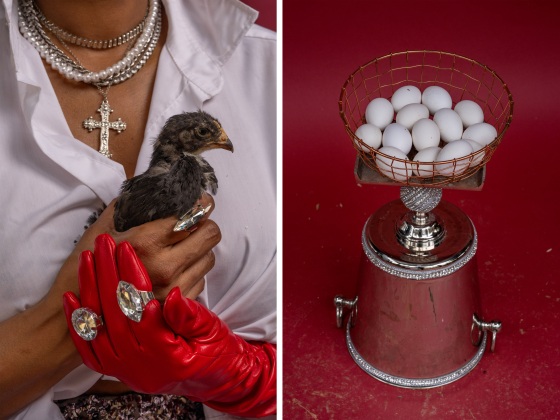For years, Naeema Finley noticed other people’s expressions when she told them she was raising chickens in her backyard. A Las Vegas native who lives in Atlanta, Finley brandishes elaborate fingernails and often wears stilettos — not your typical chicken coop attire.
“It was always, like, ‘Oh, really?’ Not sure if they believed me or not, but they were definitely surprised,” she said. “I know I don’t look the part.”
Finley started in 2020 with four chickens in a custom-made coop in her backyard. Five years later, Finley today raises 17 chickens in her yard, producing about 5,100 fresh eggs a year.
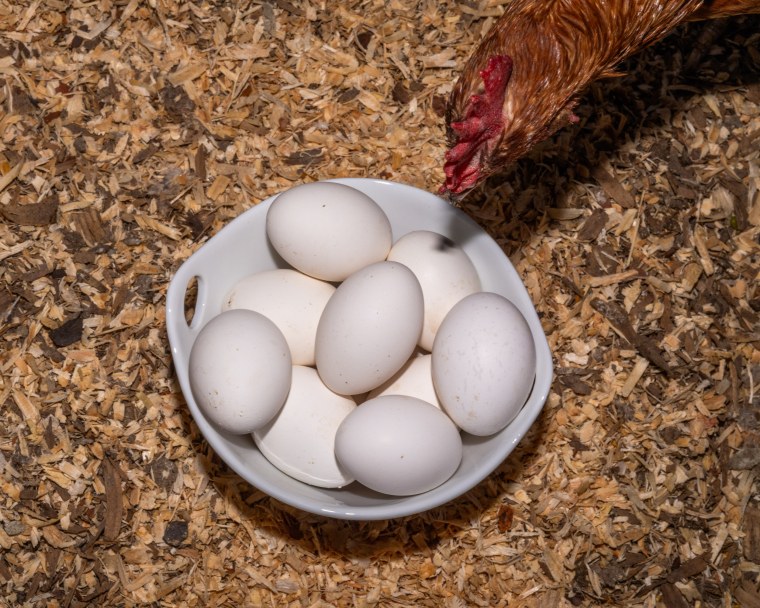
Acquiring chickens was initially a move to simply avoid mass-produced eggs for the benefit of her health. “I didn’t expect it would grow like this when I first started,” Finley said.
Now, she has a side business that has the potential for more growth as the demand for backyard-raised eggs has boomed in the last several months due to high prices at supermarkets and grocery stores. She and countless others with coops are seizing the moment, as the spread of bird flu has led to the deaths or slaughter of 13 million chickens. Independent chicken coop owners in Georgia, Florida, California and Massachusetts told NBC News that they are providing more cost-efficient and reliable alternatives as compared to what’s offered at grocery stores.
Finley, 47, sells her eggs for $3 to $9 per dozen, and no one balks at the prices.
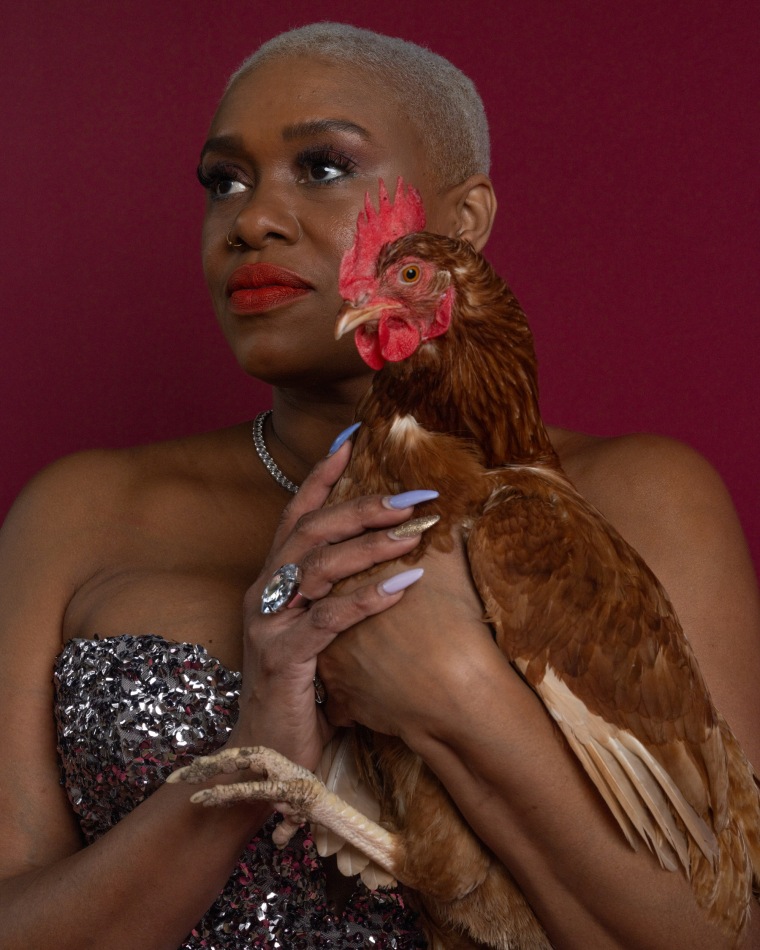
“It is an involved process to do it the right way,” Finley said. “But it’s worth it.”
Kathy Whitman, a Colorado State University Extension veterinary specialist, said the quest for fresh eggs should not preclude taking seriously the danger of the avian or bird flu, which can also hit in backyard coops.
“It’s a big threat,” Whitman said, adding that vets are “pretty regularly” seeing the disease in undomesticated birds. “It’s endemic” in wild birds, she said.
“Anytime you have your own backyard poultry that potentially has exposure to those wild birds, it’s always going to be a risk.”
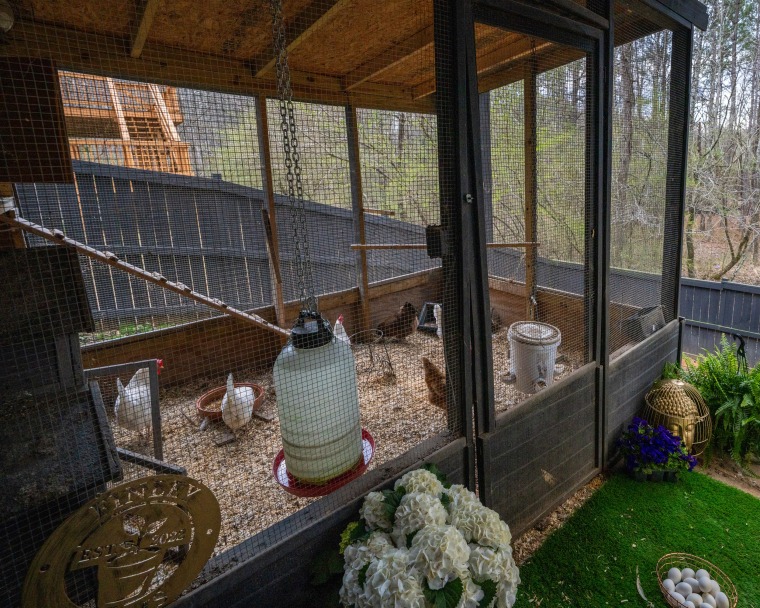
Keeping chickens in protected enclosures is important, Whitman said, especially if the backyard coop is near waterways, where wild birds congregate. It’s also critical, Whitman said, that owners make sure to not track wild bird fecal matter into the coops.
“All of these large operations that have had bird flu outbreaks have stringent biosecurity protocols and have invested a lot of money in safety, and still, the bug is able to get in on occasion,” she said. “So, the backyard coop owner has to be especially diligent — and consult with a veterinarian with any concerns.”
In addition to the convenience of producing one’s own eggs, Finley said mass-produced eggs found at grocery stores generally lack the personal care she and other backyard coop owners can provide. Coop owners said their eggs are just fresher — and desired.
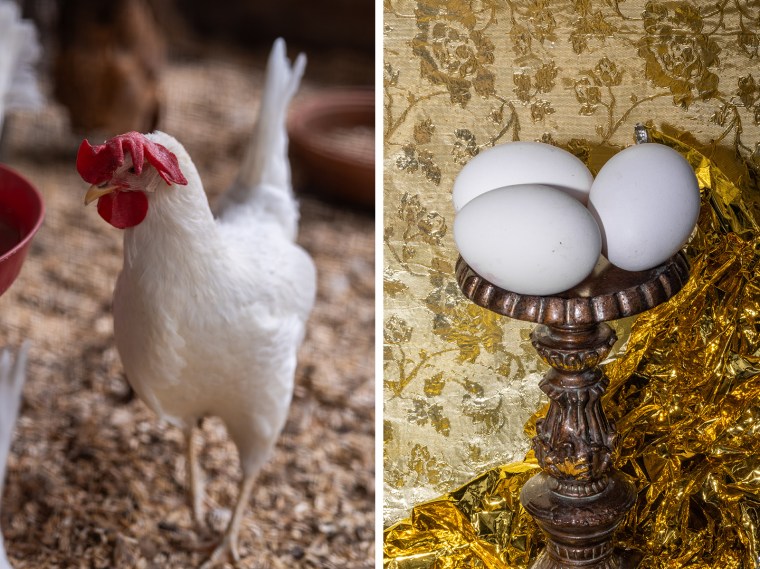
Last year, Finley started a chicken-raising consulting business, The Royal Chicken Coop, to help newcomers navigate the process. Egg-selling has been a word-of-mouth business for Finley; her clients include local bakeries, salon clients, neighbors and others on an ever-growing waitlist.
Christina Li, 21, a student at Harvard University, has built her very own business as an intermediary of sorts. When the senior's parents visit every two weeks or so, they bring fresh eggs from their backyard coop about 45 minutes away, in Haverhill. She sells some of them to her closest friends.
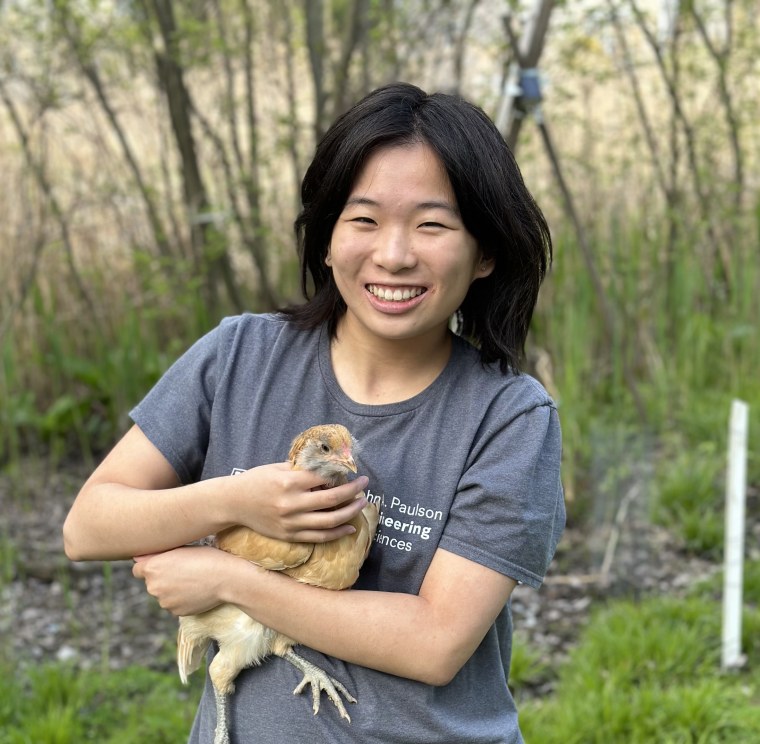
“Whatever I get is sold in the first two emails I receive,” Li said. “The demand is that crazy.”
The fresh eggs have become such a hot commodity, they make good gifts, too.
“One of my friends just had his birthday, and instead of me getting him a present, I just gave him two dozen eggs for him to cook for his birthday party,” she said. “He loved it.”
The benefit of fresh eggs comes with important work, however.
Because of bird flu concerns, Joshua Cooey of Tallahassee, Florida, has made sure his coops are tightly secured to prevent contact from outside birds. The demand for eggs from his 30 chickens has increased sharply — he estimates he has a weeklong waitlist — but he has not strayed from his rate: $5 for a dozen.
“My feed costs haven’t gone up,” said Cooey, 27, who works in finance. “I’m selling eggs to pay for the chickens. I’m not trying to make a living out of this. So it allows me to break even, but also give people a higher-quality product than what they would buy in the store. And there’s something to say about how that makes you feel personally.”
For Christin New, whose multigenerational family moved from Redwood City, California, to a 2-acre home in the nearby Santa Cruz Mountains in 2022, her seven chickens provide the feeling of family pets while also producing fresh eggs. Like Cooey, she isn’t selling eggs to turn a profit.
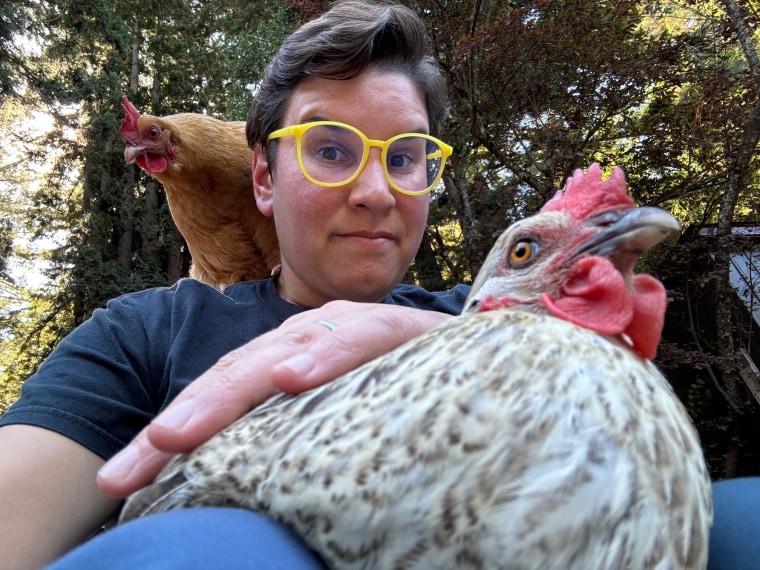
“I care about pets and animals, and so if I can raise chickens and they can lead a good life, and can provide eggs that promote a good diet, then it’s great,” said New, 39, a clinical research scientist.
Finley’s chickens down in Atlanta have also become part of her family, she said. She named them after influential Black women like Oprah Winfrey, Kamala Harris, Maya Angelou and Texas Rep. Jasmine Crockett. Her college-aged daughters named one Beyoncé.
“I love them,” she said. “They are spoiled. I feed them fruits, berries, greens — stuff from my own scratch that’s chopped up and dried.”
But, while Finley has created a small business, most of New’s eggs are for her home and neighbors. “If we have excess, we will sell to neighbors, but probably at a loss. We’re just glad to provide fresh eggs,” New said. “They say, ‘If I’m going to pay $5, $6, $7 a dozen, I’d rather buy them from the chickens that I walk by at your house and can see that they live a nice life outside.’”
In a similar spirit, Amir Johnson, who raises 10 chickens in Atlanta said it feels “good to be able to give eggs to my friends and those in need.”

The 32-year-old began raising his chickens last year for the purposes of donating to the homeless through his nonprofit organization, Need To Feed. His group provides meals for the unhoused once a month in and around Atlanta.
He grows organic vegetables and aspires to feed others “from my own food sources,” he said. “So, I got chickens to see how that would go.”
Johnson hopes to eventually have enough land so the people he serves “won’t have to go to the grocery store for any food,” he said. “I want to do it all there.”

Running a coop was not easy at first, but it became a useful diversion for Johnson, a federal government employee facing career uncertainty with the Trump administration’s widespread jobs cuts.
“It’s been a nightmare in one sense,” he said. “You don’t know what’s going to happen. But I have my chickens.”
CORRECTION (March 12, 2025, 3:30 p.m. ET): An earlier version of this article misstated a student’s last name. She is Christina Li, not Yi.
